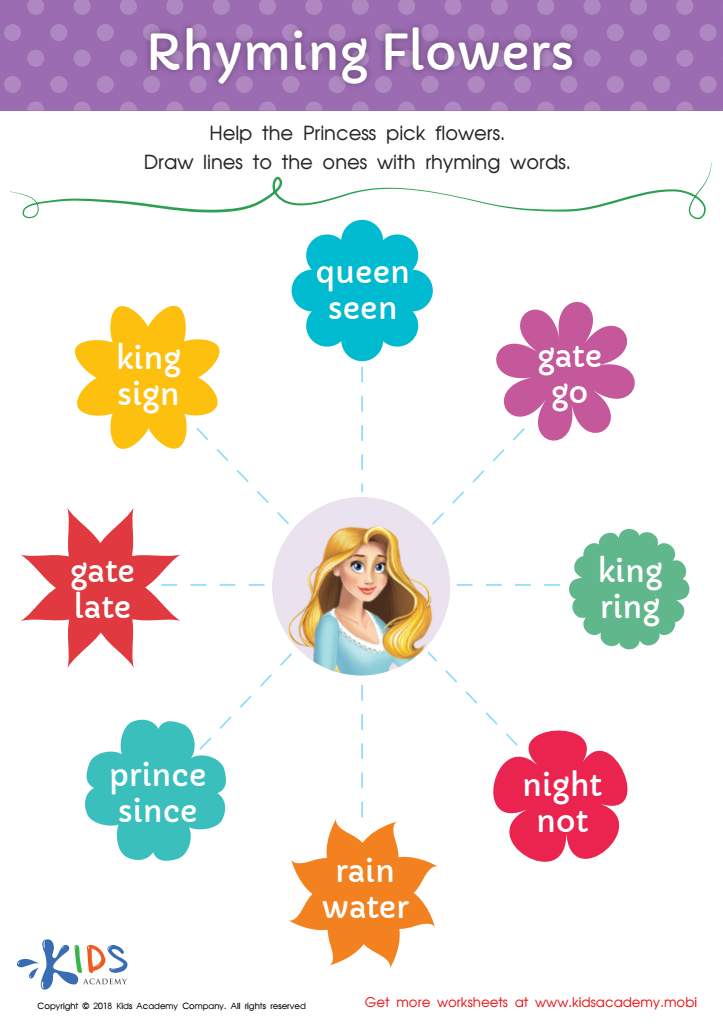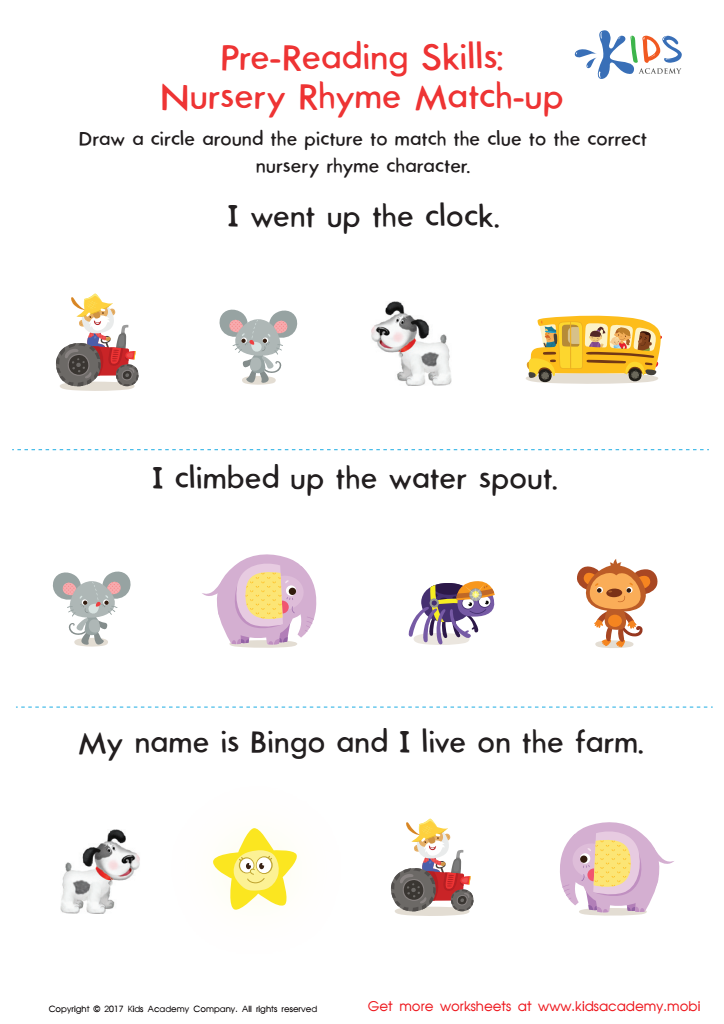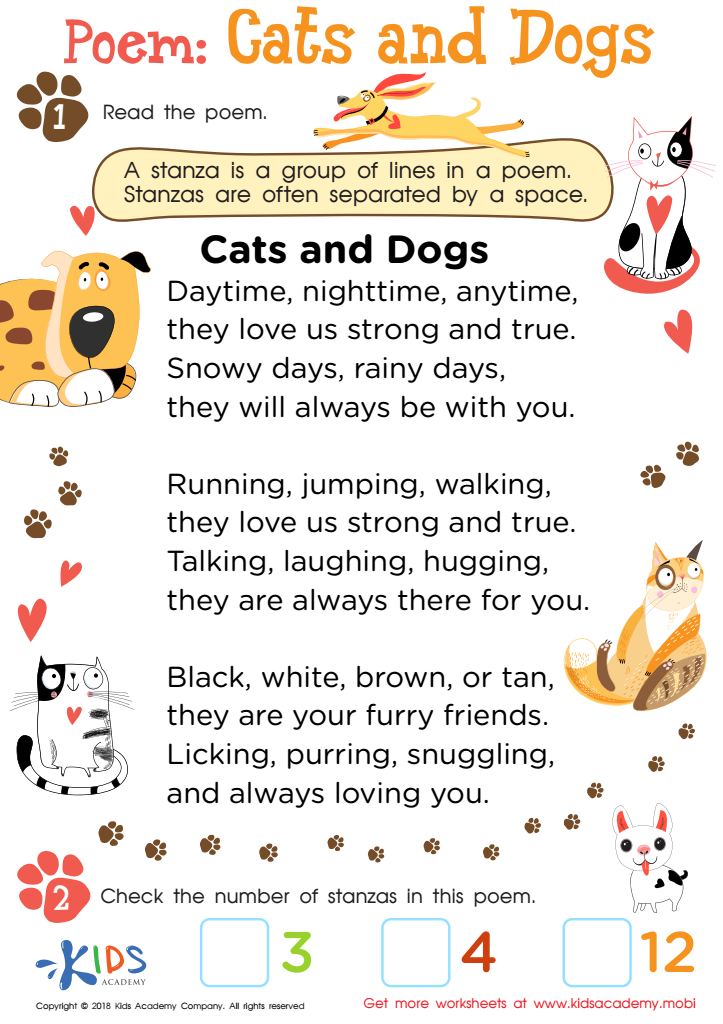Rhyme recognition Reading Comprehension Worksheets for Ages 7-9
4 filtered results
-
From - To
Rhyme Recognition Reading Comprehension Worksheets for Ages 7-9 are designed to enhance children’s reading skills while making learning fun. Our worksheets help kids identify rhyming words, improving their phonemic awareness and vocabulary. Each worksheet presents engaging activities that encourage young learners to recognize sound patterns, fostering a love for reading and boosting comprehension abilities. Perfect for classroom use or at-home practice, this resource provides a solid foundation in reading fluency and understanding. Equip your child with the tools they need to succeed in reading with our expertly crafted worksheets that turn learning into an enjoyable adventure.


Baa Baa Black Sheep Printable


Rhyming Flowers Worksheet


Nursery Rhyme Match–Up Worksheet


Poem: Cats and Dogs Worksheet
Rhyme recognition and reading comprehension are critical components of early literacy, and they deserve the keen attention of parents and teachers working with children aged 7-9. At this developmental stage, children are building the foundational skills needed for fluent reading and overall academic success. Rhyme recognition enhances phonological awareness, an essential element in learning to read. Understanding and identifying rhyming words helps children discern patterns in sounds, which supports word decoding and spelling abilities.
Moreover, cultivating rhyming skills can make learning more engaging and enjoyable. Rhymes naturally capture children's attention, making it easier for them to remember new words and concepts. This engagement is crucial for developing a love for reading, which in turn fosters improved reading comprehension. When children comprehend what they are reading, they can connect ideas, make predictions, and infer meanings, which are key components of critical thinking.
For parents and teachers, nurturing these skills contributes to a positive learning environment, where children feel confident and capable. Comprehensive literacy skills gained through activities like rhyme recognition prepare children for the increasingly complex texts they will encounter as they progress in their education. This early investment lays the groundwork for strong language skills, academic achievement, and lifelong learning.
 Assign to My Students
Assign to My Students




















